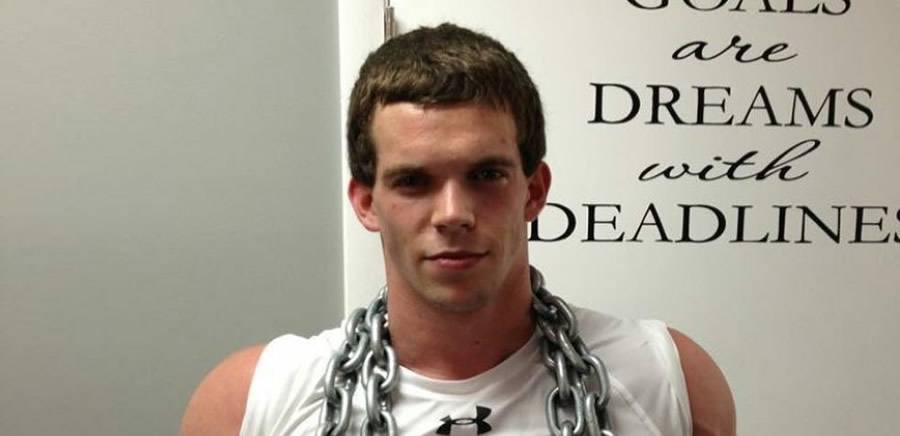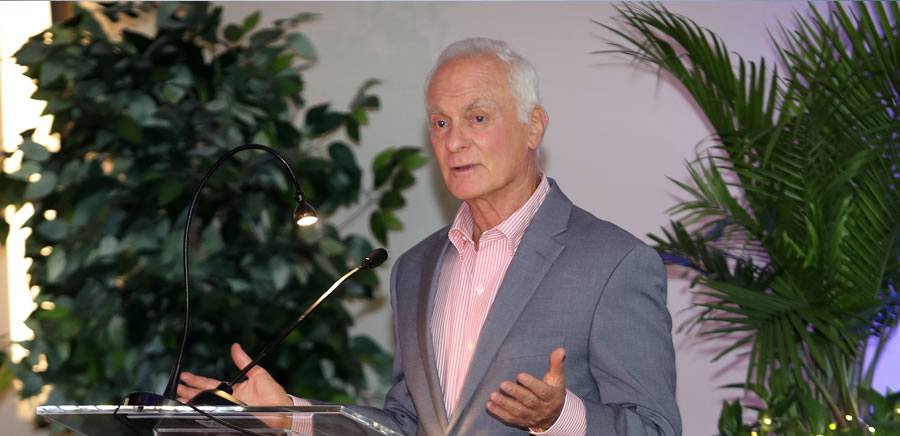The Harris Rosen Foundation investment supports a multipartner collaboration focused on leading-edge brain tumor immunotherapy
ORLANDO — The University of Florida has received a $12 million gift from Orlando hotel magnate Harris Rosen and The Harris Rosen Foundation to advance innovative brain tumor immunotherapy research and care at UF Health and to launch an unprecedented partnership for the development of novel brain tumor treatments.
The Rosen gift is the cornerstone of a $100 million fundraising commitment to support the ReMission Alliance Against Brain Tumors, a groundbreaking, collaborative initiative led by UF that will unite world-leading neuro-oncology physicians and scientists in dynamic research and clinical trials.
The gift was announced Friday, Feb. 22, before the inaugural ReMission Summit for Brain Tumors at the Rosen Shingle Creek Hotel in Orlando. The UF-organized Summit brings together more than 100 experts in neuro-oncology, tumor immunology, genetics, artificial intelligence, neuroimaging and bioinformatics to form an elite research community focused on achieving transformative outcomes for patients with brain tumors over the next decade. The ReMission Summit also serves as the public forum for the debut of the ReMission Alliance, a multi-institutional research collaborative focused on the advancement of novel immunotherapies for adult and pediatric brain cancer.
“I am extremely grateful that Harris Rosen and his family share our vision to make a transformative impact on outcomes for patients with brain tumors,” said Duane Mitchell, M.D., Ph.D., co-director of UF’s Preston A. Wells Jr. Center for Brain Tumor Therapy and director of the ReMission Alliance. “Their support of our research, patient care initiatives and the ReMission Alliance will allow us to leverage the power of the immune system to combat invasive brain cancers to dramatically improve the lives of brain tumor patients, here at UF and abroad.”
The ReMission Alliance’s work builds on the success and growth of UF’s Preston A. Wells Jr. Center for Brain Tumor Therapy and collaborative research partnerships fostered over several years by Mitchell and his colleagues. Over the past five years, the center has undergone dramatic growth and established itself as a leader for brain tumor treatment and research. Along with William Friedman, M.D., co-director of the Preston A. Wells Jr. Center, Mitchell and his team will support several bold research projects and clinical trials coordinated with principal partners from among the world’s best research institutes and hospitals.
“Thanks to the generosity and support of Harris Rosen and his family, we are able to pursue research breakthroughs that result in real change,” UF President Kent Fuchs said. “I am confident that, together, we can advance the work necessary to provide extraordinary outcomes for patients suffering from malignant brain tumors and improve their survival rates and quality of life. The ReMission Alliance embodies UF’s commitment to the greater good.”
This work — to organize multidisciplinary, collaborative research efforts among groups of skilled researchers and physicians — resonated deeply with Harris Rosen. His son, Adam, who received care at UF Health, died in November after a prolonged fight with brain cancer. Harris was impressed by the UF Health clinical team’s professionalism, skill and commitment to making Adam and his family as comfortable as possible.
“It was obvious how dedicated they are to improving the quality of life for their patients,” Rosen said. “The team at UF is already doing extraordinary work, and the Alliance will enhance their progress and improve outcomes for patients well beyond Florida. A collaboration like this is difficult and lofty, but my family and I support this vision to rewrite the story of brain cancer.” The Rosen gift will bolster ongoing research efforts at UF Health and provide vital seed funding for the ReMission Alliance. The suite that houses the UF Health Neuromedicine practice at the UF Health Neuromedicine Hospital and the neuro-oncology laboratories within UF’s Evelyn F. and William L. McKnight Brain Institute will be named in honor of Adam Michael Rosen. This investment by the Rosen family adds considerably to the UF Health Cancer Center’s growing resources to combat deadly malignant diseases. Mitchell serves as co-leader of the UFHCC Cancer Therapeutics and Host Response, or CTHR, program.
“Programs like the CTHR bring researchers from numerous UF colleges, departments, centers and institutes together, working in tandem to advance the development of new cancer therapies for resistant cancers,” said Jonathan D. Licht, M.D., director of the UFHCC. “Initiatives at the Cancer Center have become a centerpiece of UF Health’s overall research portfolio, which includes approximately $200 million per year in NIH funding and totals $450 million in sponsored program expenditures.”
David Nelson, M.D., UF’s interim senior vice president for health affairs, added his appreciation for the Harris Rosen Foundation gift.
“This contribution to the groundbreaking work and collaboration that our team at UF Health is undertaking is a significant vote of confidence that our efforts will make a profound impact on the people and communities we serve,” Nelson said. “Our physicians and researchers are fueling scientific discovery while developing new, promising pathways for patient care. Through the collaboration that this gift catalyzes, our impact will be even greater.”
These transformative commitments demonstrate how UF, as one of just a handful of global comprehensive universities, is positioned to leverage its research expertise and academic excellence to create lasting impact in the health care field and address major societal challenges.
Harris Rosen is the founder, president and chief operating officer of Rosen Hotels & Resorts. His company owns eight hotels and resorts in Central Florida, including the 1,501-room, AAA Four Diamond Rosen Shingle Creek.




